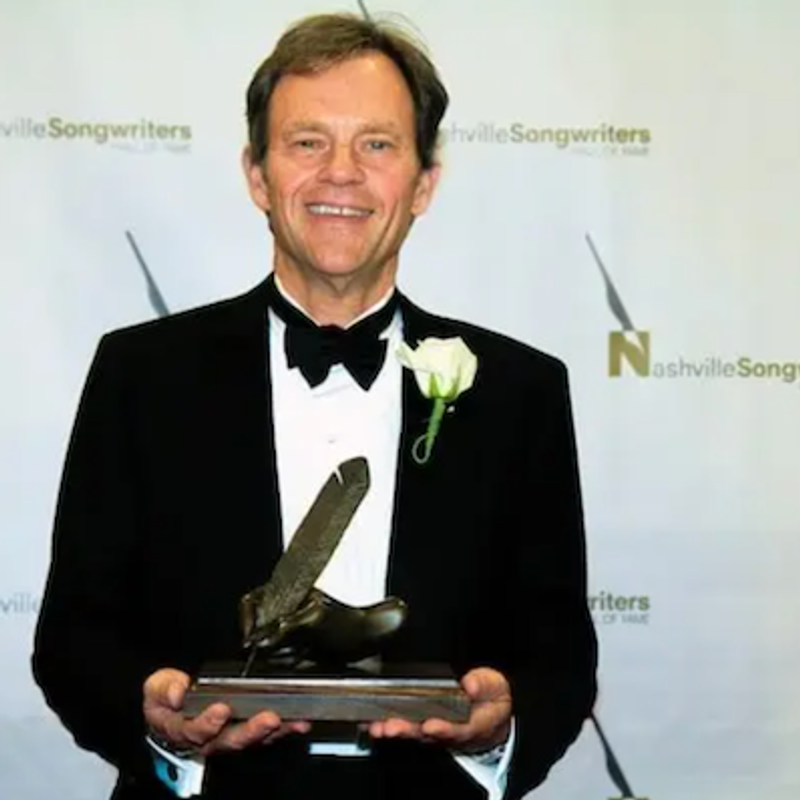




Link copied

When asked to write a country song, the artificial intelligence chatbot, ChatGPT, spat out a tune verse-by-verse, complete with a chorus, bridge and outro. An impressive feat for a computer? Sure. A good song? Not at all.
The tune, which the software dubbed ‘Country Road to Eternity,’ hits on all the major country-isms, painting stock images of dusty trails and rolling plains while sandwiching together themes of love, freedom and regional pride. The lyrics, however, are bland and the imagery two-dimensional. Overall it’s a hollow product strung together by rural buzzwords and simple adjectives.
While the AI-generated country song is by no means poised to top the charts anytime soon, it does offer a small taste of what could come in the not-so-distant future.
Artificial intelligence - a machine’s capability to mimic human problem-solving and decision-making - may be in its infancy, but heated conversations have already sparked surrounding the impact of AI and machine learning, especially pertaining to the music industry. Complex questions have arisen concerning ethics and copyrights, royalties and compensation, and most of all, the very essence of creativity.
The discussion is evolving in many different directions, with the ultimate verdict currently divided between those embracing the possibilities of AI and those fearing its potential. To some, AI will act as a creative ally, making way for boundless opportunities for invention, whereas others envision a future in which humanity is obsolete.
The age of AI is unarguably here, but what does that mean for country music in particular? Is a genre that is so deeply rooted in authenticity and originality in danger of losing the very thing that sets it apart?
At the core of country music exists the age-old formula: three chords and the truth. “There have been so many variations of country songs,” explains acclaimed songwriter Tom Douglas, “but honestly, even though that does sound simplistic, that really is it.” Douglas’ work has spanned three decades and many of his songs have topped the charts by way of Lady A (‘I Run to You’), Tim McGraw (‘My Little Girl’), Miranda Lambert (‘The House That Built Me’) and more.
Sonically, the genre is known for its no frills approach, but when it comes to “the truth” part of the equation, country music bares it all. “The truth is a multi-faceted kaleidoscope. It's heartache, heartbreak, it’s loneliness, it’s loss … It's all points in between”, Douglas details. “It's leaving home, it's coming back, it's drinking too much and sobering up, getting your hands dirty, making a living and trying to provide for your family”.

Tom Douglas at the Nashville Songwriters Hall of Fame
As of now, a machine can pull together three chords thanks to music-generating algorithms, but it’s difficult to imagine the same device spouting out a song that can tell a story, detail genuine emotion and connect with listeners the way the genre has always strived to. Douglas calls the songwriting process “imperfect”; it’s a distinctly human endeavor. However, with a goal of AI being to limit imperfections in the name of productivity, it makes one wonder what else could be lost in the process.
We are seeing the early stages of something that is expected to alter many aspects of our lives. As AI continues to make significant advancements in the composition and production of music, the changes being witnessed today are merely just the tip of the iceberg.
“The world's going to change,” states F. Reid Shippen, a Nashville-based producer-engineer who is helping to lead the conversation around AI in regards to creatives. “This is probably the most significant innovation since the internet, so it's going to change a lot and we're just going to have to deal with the fact that it is.”
He talks about the importance of creators being able to pivot as AI continues to be implemented in music. “You can look at AI as a tool of replacement,” he explains, “or you can look at it as a tool of empowering creatives.”
Innovation is nothing new to the music industry, he says, detailing the changes that came with the arrival of sheet music, then the phonograph record being followed by CDs, digital downloads and now streaming.
“Every one of those innovations led to much more money, much more expansion, much more innovation in the music industry than it prevented,” he argued, adding that with every one of these advancements came feelings of apprehension. “Disruption is scary and people have a fear reaction. They instinctively kickback and push away from it.”
Change, however, is not something to shy away from, especially when it comes to an innovation as momentous as artificial intelligence. “We're going to get new and exciting stuff that's enabled by the technology and by the people who embrace it as a creative tool and not the people who fight it,” Shippen encourages, adding, “All innovation hurts, all disruption hurts, but out of it comes the best stuff.” Those in the country music industry seem to understand this and aren’t willing to take a back seat this time around.
“What we don't want to do is wait 10 or 20 years like we did trying to fight the advent of the digital revolution,” Douglas warns, recalling a time when country music was behind the curve in regards to the early digitization of the industry. This is something longtime songwriter Barry Dean echoed. The writer of hits like Little Big Town’s ‘Day Drinkin’’ and ‘Pontoon,’ Dean is already seeing the subtle shifts that AI has brought to his work and says he’s refusing to stick his head in the sand.
“You're either going to have to deny it exists, which is a dangerous slope … or you’re going to have to embrace it in some way,” he says. “I don't have to swallow it whole, but I'm going to have to learn about it and I'm going to have to go explore it and see how it could come into my working approach.”
Several players in the country music industry are approaching this change with optimism, seeing AI as a tool they are cautiously yet hopefully ready to employ, partly because they understand the reality that AI is here to stay, but also because they know that a machine can not do what they do: feel. “AI can give you the words, but I don't know that it tells you the story,” Dean shares, “or maybe AI can give you the words and put together a story, but it doesn't understand the emotion of why.”
“It will never, ever be able to reveal loneliness or heartache or desperation or hunger or wonder or passion,” Douglas remarked. He adds that there may come a day when AI is able to get close, but said ultimately listeners want to be moved, they want to have their story told.
For that very reason, country music – perhaps more so than other genres – seems poised to present a unique example as advancements in AI progress. “It's going to be a long time before a computer can sit in the room next to you and be Jason Isbell and be playing and singing and emoting on a visceral level,” Shippen assures. “I think it's going to be a while before you're going to get three chords and the truth alongside a voice as honest as Luke Combs or Dierks Bentley from a computer.”
While the debate of AI in music continues, one thing seems certain: what lies at the heart of country music remains safely in the hands of its creators. Artificial intelligence has the potential to be a powerful tool in the music-making process, maybe changing the way creators get their three chords, but never replacing the truth.
---




